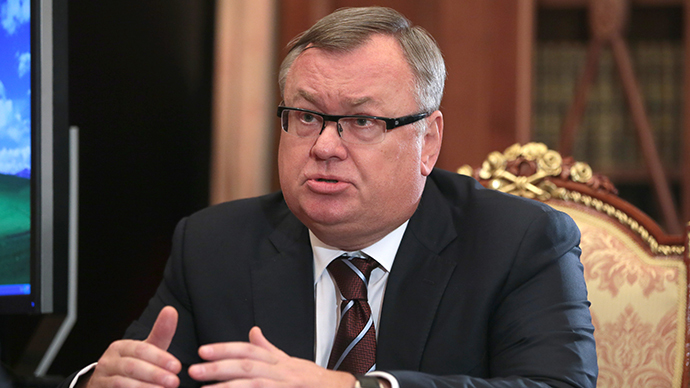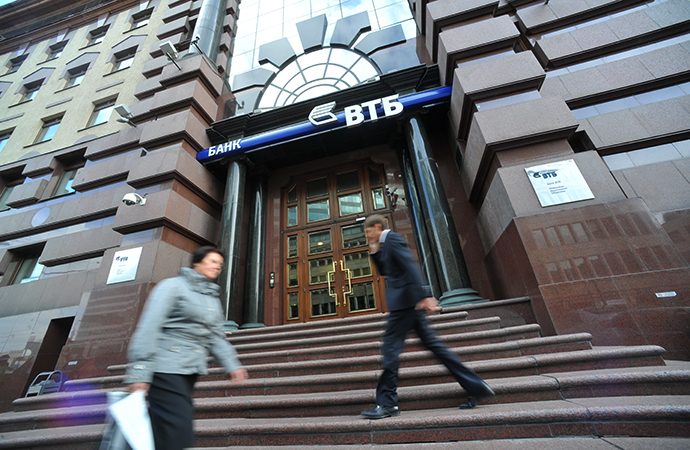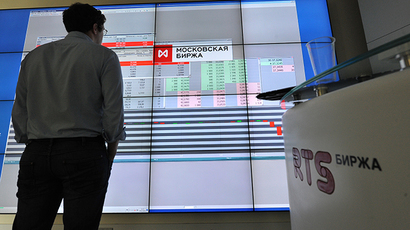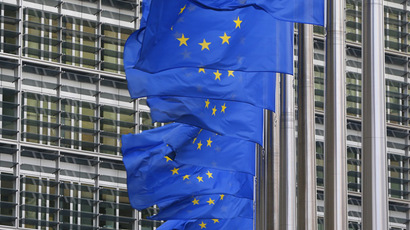Politics aside, western financiers still want to do business with Russia

Western banks in the US and EU still want to do business with Russia’s second biggest bank, VTB, but tension over Ukraine is stonewalling those eager to work with the bank, according to its head, Andrey Kostin.
“I can say one thing- that in the last few weeks I have met several bankers from the US and EU that have said they want to continue to work with us,” Kostin, the bank's President and Board Chairman, said in an interview with Izvestia.
“They flew in especially to confirm these intentions, so I would say they are willing to cooperate, that hasn’t changed. It’s just that our partners can’t loudly publicize their willingness, because they feel pressured,” the VTB head said.
The EU and US froze assets and placed visa bans on senior Russian officials as well as Russia’s fifteenth largest lender, Bank Rossiya, targeted because it is believed to be the bank of many senior Russian officials.
US Secretary of State John Kerry has spoken of more sanctions against Russia, as pro-Russian sentiment in the eastern cities of Kharkov, Donetsk, and Luhansk heat up.
“Business is a factor that is preventing US and EU authorities from moving further down the list of sanctions because businessmen are pragmatic people,” Kostin said.
However, sanctions have made international investors uneasy, and in the first three months of 2014, more than $63 billion in capital has flowed out, the same amount that t left during the whole of 2013, according to Central Bank data.
Capital outflow is a result of Ukraine tensions which have coincided with a weakening ruble, which has lost more than 10 percent of its value since the beginning of year against the dollar.
Sanctions were a response to Moscow’s acceptance of Crimea, a former Ukrainian region, as a new part of Russia. Action in Crimea has worsened market conditions for Russia’s second-largest state bank, as investors worry about more sanctions from the US and EU.
VTB appears to be moving towards more international ruble payments. Kostin has urged more ruble-based payments with trading partners in China, as well as Europe. The move would make the bank less vulnerable to any sanctions from the US or EU.

VTB opened its doors in 1990 under the name Russia’s Foreign Trade Bank and was positioned to be a bridge between the Russian market and foreign investors.
Political motivations
Western financiers are facing pressure not to visit the St. Petersburg Economic Forum in May. The eighteenth annual forum draws over 4,000 investors, economic experts, and policy makers from around the world and is one of Russia’s most important economic events of the year.
Kostin believes VTB’s London subsidiary may be experiencing unusual treatment from the Bank of England.
"In the last weeks, we have experienced very strong pressure from the Bank of England towards our bank VTB Capital Plc in London," said Kostin in the same Izvestia interview.
"They are trying to make demands which are incompatible with regular supervisory practices," Kostin said. "It seems to me that they (the measures) have a more political motive."
Mr. Siluanov goes to Washington
Russian Finance Minister Anton Siluanov has been in Washington DC this week for talks on the Foreign Account Tax Compliance Act (FATCA) which will require foreign banks to share information on American clients to the US Internal Revenue Service (IRS) to aid its crackdown on offshore tax evasion.
If a bank doesn’t join the system by July 1 2014, undeclared
American accounts could be subject to a 30 percent tax.
Disagreement over politics in Ukraine could curb these talks, as
last week the US put negotiations with Russia on hold.
To avoid the costly penalty, Russia's Finance Ministry is currently drawing up its legislation that'll allow Russian banks give the information to foreign tax tax authorities.
FATСA members will include tax haven destinations like Bermuda, the Cayman Islands, Ireland, Luxembourg, and Switzerland, as well as several other European countries like the UK and Sweden as well as neighboring Canada and Mexico.














